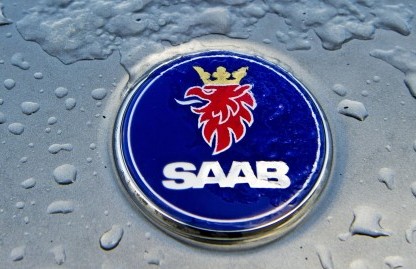Saab has filed for bankruptcy after a last ditch investment hope failed this weekend. The automaker’s struggle to stay afloat came to an end as CEO Victor Muller appeared in a Southeastern bankruptcy court in Sweden Monday morning.
The venerable carmaker has been in operation for over 70 years, but now seems destined for spare parts.
Saab, regarded as one of the world’s most respected, if quirky, auto companies, has had a rough go of it since the so-called “great recession” hit. Sold by ailing General Motors (GM) to Muller’s Dutch sports car maker Spyker in 2010, the brand has been propped up mostly by the CEO’s diligence and attempts at financing deals from Russia to China and beyond.
Rights to technical innovations owned by GM have barred the way for any Saab investment deal. The latest, and as it turned out last, hope for a deal was with China’s Zhejiang Youngman Lotus Automobile Co.
The failure of Saab has far reaching implications on both economic and emotional levels. For one, some 3,500 workers at its home factory in Trollhattan will certainly lose their jobs, as will many more in support industries in the region. For Sweden, and automobile enthusiasts worldwide, the car manufacturer holds a revered place in auto history. Begun in 1937 as Svenska Aeroplan Aktiebolage, the first mechanical marvels Saab turned out were warplanes. The company later split into an aeronautical aspect and auto manufacturer in the 1990s, but the legend of Saab engineering has always been consolidated.
This news is all the more troublesome given the company’s successes before the recession, and considering overall customer satisfaction with Saab’s character. Saab competes with some of the finest automobiles in the world across several classes. Most experts predict the company will be parted out like so much junk, one sad legacy for the pride of Swedish engineering. Saab sold as many as many as 233,000 cars in 2006.
Continual attempts to block Saab’s takeover bids by GM have evidently been successful, much to the loss of the company’s workers and Sweden’s industrial base as well. Some auto experts also claim that Saab being engendered to GM auto-frame components hurt the brand too—differentiating the luxury name from competitors in Germany. In short, having been a GM company did nothing positive for the Swedish brand. This December, the company which was “Born from Jets” is no more.
Phil Butler is editor-in-chief of Everything PR and senior partner at Pamil Visions PR. He’s a widely cited authority on beta startups, search engines and public relations issues, and he has covered tech news since 2004. You can follow Phil on Twitter: @Philbo.






